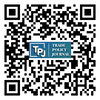PELUANG DAN DAMPAK PERMANEN MORATORIUM CUSTOM DUTY ON ELECTRONIC TRANSMISSION (CDET)
Keywords:
digital, import duties, internet, SWOTAbstract
Indonesia plans to impose import duties on electronic transmission trade (digital products). The policy is deemed necessary, among other things, to obtain statistical records of electronic transmission trade flows and to encourage Small and Medium Enterprises to develop software. Therefore, it is necessary to analyze the opportunities and impacts of the import duty policy. The SWOT analysis results show that Indonesia's position to impose an import duty policy on digital products is a Strength (S)-Opportunity (O). The implementation of the import duty policy will have an impact on decreasing exports and imports of Indonesian digital products. However, the decrease in imports is more significant than that of exports so that it can encourage domestic production. In addition, the government can earn income from import duties. Thus, Indonesia can impose import duties or not extend the moratorium on electronic transactions. To ensure that goods from domestic business actors can compete and substitute imported goods, the government must provide support in the form of increasing supporting infrastructure such as internet accessibility, improving the quality of human resources through the provision of formal and informal training by market demand, the existence of regional regulations governing the development of the creative economy because of the large number of business actors in the regions, and tax incentive policies. Implementing the import duties must consider the interests of domestic consumers.
References
Alghiffari, A. (2024). Strategi Pemasaran Digital Pada Time Roastery.
Direktorat Jenderal Kerja Sama Multilateral, K. (2024). Posisi Pemerintah Indonesia dalam Perundingan Joint Statement Initiative on Electronic Commerce (JSI E-Commerce) of the World Trade Organization (WTO) (Issue 1).
Ekonomi, D. A. N. (2021). Statistik Tenaga Kerja Pariwisata dan Ekonomi Kreatif 2018-2021.
Fahriyansah, M. (2018). Pengaruh Kredit Terhadap Pertumbuhan Ekonomi Di Indonesia ( 2010-2016 ). Universitas Brawijaya, 1(1), 1 - 15.
Huda, N., & Rozani, A. (2023). Peningkatan Kebijakan Tata Kelola Ekonomi Kreatif dalam Rangka Percepatan Pembangunan di Kota Pariaman. Jurnal Economic Development, 1(1), 1 - 13.
Kemenparekraft. (2020). Infografis Data Statistik Indikator Makro Pariwisata & Ekonomi Kreatif.
Kemenparekraft. (2021). Statistik Upah Ekonomi Kreatif Pariwisata dan Tenaga Kerja 2018-2021.
Kemenparekraft. (2023). Outlook Pariwisata dan Ekonomi Kreatif.
Maharseto, A. F., Handayani, W., & Halim, A. (2016). Tarif Bea Masuk Barang Digital yang Bersedia Dibayar dan Faktor-faktor yang Memengaruhi Kesediaan Membayar Bea Masuk Barang Digital. ABIS, 6(4), 1 - 20.
Naidah, H. (2009). Pengaruh Sistem Informasi Manajemen (SIM) Terhadap Kinerja Karyawan Pada PT. Metro Batavia Air Distrik Makassar. Balance : Jurnal Ilmu Ekonomi Studi Pembangunan, 1(1), 73 - 83.
Nugroho, P., & Cahyadin, M. (2023). Analisis Perkembangan Industri Kreatif di Indonesia.
Pariwisata, B., Ekonomi, D. A. N., & Statistik, B. P. (2022). Statistik tenaga kerja pariwisata dan ekonomi kreatif 2018-2022.
Pribadi, Y., & Nurbiyanto, N. (2021). Pengukuran Daya Saing Kabupaten Lampung Tengah: Metode Location Quotient Dan Shift-Share Analysis. Inovasi Pembangunan Jurnal Kelitbangan, 9(3), 299 - 310.
Tarumanagara, U. M. U. (2012). Seminar Nasional Kewirausahaan & Inovasi Bisnis II Peran Wirausaha dalam Meningkatkan Keunggulan Kompetitif Nasional Melalui Ekonomi Kreatif (Issue September).
Wiagustini, N., Mustanda, I., Meydianawathi, L., & Abundanti, N. (2017). Potensi Pengembangan Investasi Berbasis Ekonomi Kreatif di Kota Denpasar. JEKT, 10(2), 155 - 173.








 Trade Policy Journal
Trade Policy Journal
